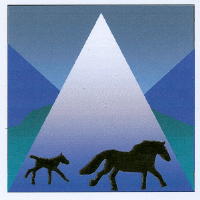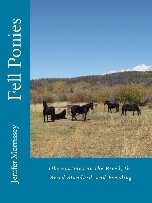Humble Pie and Summer Blacks
/Over the course of the few months it took him to read the book, my nephew would give me reports via video chat. It finally became clear I needed to read the book, too, and I gave him a book report back. His response was, “Your comment about making a regular diet of humble pie made me laugh, but I think it’s a good philosophy to live by.”
What if the summer black color is an asset rather than a sign of nutrient defiiciency?!
The book was 1491: New Revelations of the Americas Before Columbus by Charles Mann. I thought I was aware of the newer understanding of how Native Americans worked with the environment of the Americas to support their lives. This book, though, made me realize I had no idea how extensive their stewardship was and how large their populations were that were supported by that stewardship. Hence my comment about needing to make a regular diet of humble pie; there will always be more to learn, and I’d best not get too set in my way of thinking about things!
Since I spend a lot of time everyday thinking about Fell Ponies, I wondered what might be cause for eating humble pie on that topic. Immediately what came to mind was the color summer black. I started my Fell Pony career with two jet black Fell Ponies, but a few years later I learned that black ponies also come in a variety that fades in the summer. The conventional wisdom was that it was a copper deficiency that led to the fading, and indeed I have been able to keep the fading black ponies that have since joined my herd blacker by supplementing with copper. Since copper also is a necessary nutrient for the immune system, I felt it was an important way for me to support the health of my ponies in many ways.
My ponies and I lived at high altitude in Colorado for many years, where summer temperatures were moderate. Since moving to South Dakota, we have had to get used to hotter summer weather, and for the first time I have seen my ponies sweat not from exertion but from heat. I am grateful for the many sheds and forms of natural cover available to them so they can get out of the sun when they want to.
My serving of humble pie came spontaneously. What if a fading black coat is an adaptation for hot summers because it doesn’t absorb quite as much heat as a jet black coat? I can make many arguments about why it’s still important to supplement copper, but I will try to be open to the idea that if my ponies’ coats fade, the change in color may be helpful to them, too!
© Jenifer Morrissey, 2024
“Fell Pony Hair and Copper” is one of the chapters in my book Fell Ponies: Observations on the Breed, the Breed Standard, and Breeding, available internationally by clicking here or on the book cover.




